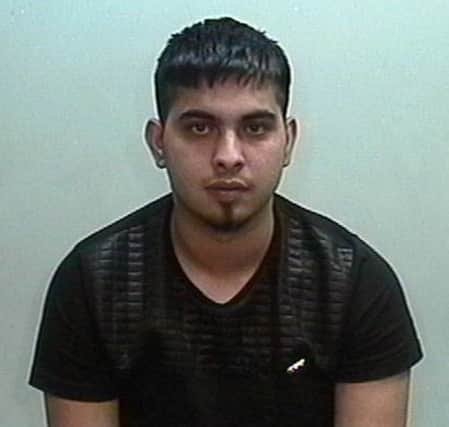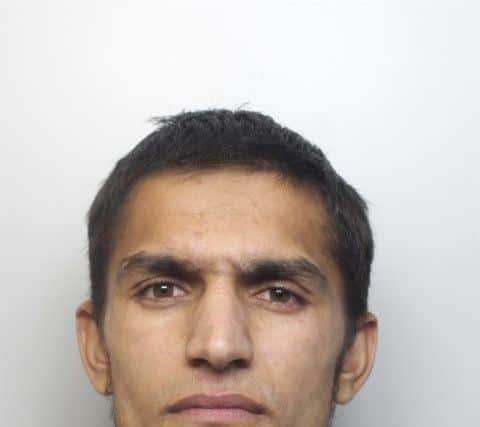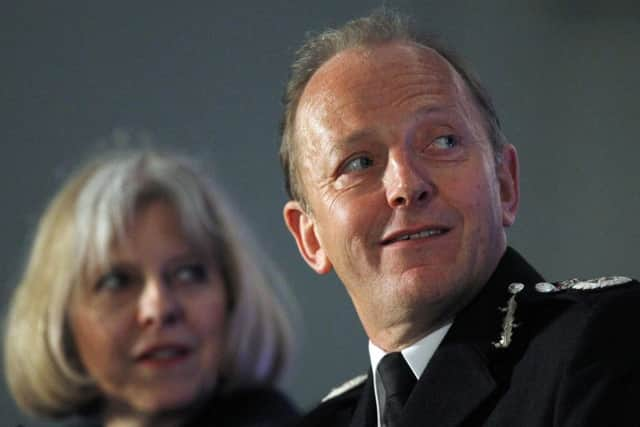'˜Leaving European Union would put Britain at risk from criminals'


Between 2010 and 2015, the European Arrest Warrant (EAW) was used on 564 occasions to help extradite mostly foreign criminals who were caught by one of the region’s police forces.
During the same period, 70 suspects were extradited back to Yorkshire and the Humber from other countries in the European Union to face trial, according to official statistics.
Advertisement
Hide AdAdvertisement
Hide AdFigures including the former Association of Chief Police Officers president Hugh Orde say a vote to leave in next month’s EU membership referendum could put public safety at risk by allowing dangerous criminals to escape justice.


The number of extraditions from Yorkshire to Europe has been on the rise since 2010, though there were fewer suspected criminals deported in the other direction last year than in 2011 and 2012.
Hassan Maruf, sentenced to 26 years in jail for the murder of takeaway worker Zabihullah Rafiq in Sheffield in 2012, was extradited from France using the EAW after being stopped there while travelling home to Afghanistan.
In 2012, Polish fugitive Tomasz Furmaniak was ordered to return to his homeland, where he was wanted on charges of robbery and theft, after being tasered and arrested by police in York city centre.
Advertisement
Hide AdAdvertisement
Hide AdFollowing an international manhunt, the 30-year-old was detained in connection with a EAW when he was spotted drinking in a bar.


Zdenko Turtak, jailed last year for the brutal rape of a woman in the Beeston area of Leeds, was returned to the UK from Slovakia after West Yorkshire Police applied for an EAW.
Wakar Akhtar, who fled to Italy during his trial for raping a woman in the centre of Bradford, was returned to the UK after an EAW was issued. He was sentenced to 17 years in jail.
Mr Orde, the former head of the body representing senior police officers, said: “European policing measures mean the long arm of the law now extends right across the continent. There are no places to hide.
Advertisement
Hide AdAdvertisement
Hide Ad“The EAW also means we can easily deport dangerous criminals back to other countries, keeping our citizens safe. Pulling out of the EU would undermine all this cooperation.”


The EAW, introduced in 2004 as a response to the 9/11 attacks in the US, is a mechanism allowing people wanted in relation to significant crimes to be extradited between EU member states.
Valid through all the states of the EU, it requires one member state to arrest and transfer a criminal suspect or sentenced person to another so they can be tried or complete a jail term.
Before the EAW was introduced extradition used to take an average of one year, but now that has been cut to an average of 48 days, the European Commission says.
Advertisement
Hide AdAdvertisement
Hide AdBut there have been criticisms of the scheme, which is said to have led to several miscarriages of justice as a member state does not have to provide evidence when it demands extradition.


In 2013, the Home Affairs Select Committee called for reform of the scheme, saying some countries used it to expedite investigations or in relation to relatively minor crimes. It said that for these reasons the UK received disproportionately more warrants than it issued.
In West Yorkshire alone, 67 suspects were surrendered in 2015 and the number of people deported to Europe using the EAW has risen since 2010, when the total was 35.
Between 2010 and 2015, 314 suspected criminals were deported to other parts of Europe with the help of West Yorkshire Police, compared with South Yorkshire Police’s total of 126, 28 for North Yorkshire and 96 for Humberside Police.
Advertisement
Hide AdAdvertisement
Hide AdOliver Coppard, field director for Britain Stronger in Europe for Yorkshire and the Humber, said: “Vital tools like the European Arrest Warrant have brought some of Yorkshire and Humberside’s most wanted and dangerous criminals to book.
“Cases like the murder of Zabi Rafiq and his killer’s subsequent attempt to flee justice remind us of the importance of the EU in protecting our safety and security. Leaving Europe would be a gift to criminals that would put this at risk.”
Mark Burns-Williamson, Labour Police and Crime Commissioner for West Yorkshire, said: “Criminals are being brought to justice here in West Yorkshire because of the European Arrest Warrant.”
Jack Dromey MP, Labour’s Shadow Police Minister, said: “Those who commit horrific crimes here in Yorkshire could escape justice without European cooperation.
Advertisement
Hide AdAdvertisement
Hide Ad“Brexit would make Britain a haven for Europe’s worst criminals and make it much more difficult for British officers to bring fleeing offenders back.
“By massively speeding up the time it takes to get suspects back to face justice, to ensuring our police have the data and cooperation they need to keep people safe, the EU is crucial to our national security.”
Matthew Elliott, Chief Executive of Vote Leave, said: “The best way to fight crime is through international cooperation but that’s something the EU is very bad at. In fact the EU’s own border agency has had to admit the EU is making us less safe while EU judges have stopped the UK from both deporting known terrorists and stopping dangerous criminals from entering the Britain.
“When we Vote to Leave we can take back control of our borders while working closely without allies in and out of the EU who rely on intelligence from us far more than we do from them.”